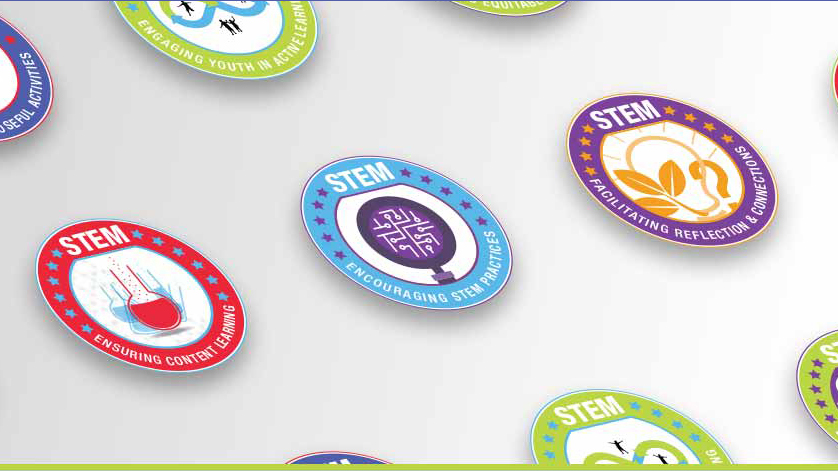
After-school staff now can gain skills and credentials through a new micro-credentialing system offered by the National AfterSchool Association.
In development for several years, the system allows front line staff to train online or seek out training and then demonstrate mastery by creating a demonstration video or providing documentation of the skills.
“We want to make sure staff and leaders in out-of-school time get the professional development and recognition they need to be successful,” said Heidi Ham, vice president of programs and strategy for the National AfterSchool Association. “Staff are really key to programs that get positive outcomes.”
Micro-credentials are short and competency-based, she said.
“It’s a way for people to scaffold their learning.” she said. They can learn and practice one skill, then move on to another.
The currently available credential is in STEM facilitation — the creation of informal STEM learning environments. The credential is divided into 10 skill areas, or micro-credentials, including how to successfully engage youth, create a positive learning atmosphere, ensure equitable participation and facilitate reflection. NAA worked with Click2Science, the Maine Mathematics and Science Alliance and Harvard’s PEAR (Partnerships in Education and Resilience) Institute to set up this credentialing system.
Other credentials are being developed in the areas of:
- digital learning
- literacy
- social and emotional learning
- healthy eating and physical activity.
“We plan on building out the system,” Ham said.
Two credentials for after-school leaders will be in the area of training others and leading with emotional intelligence.
To participate, users will register online at the Digital Promise Micro-Credential Marketplace. After seeing the skills required, users decide whether to do training or whether they are ready to demonstrate their skills.
To get training, they can turn to a list of training resources.
“There’s lots of great [professional development] out there,” Ham said. “There are lots of people providing PD.”
When ready, users can upload a video showing their skills in action. Alternatively, they can submit a Dimensions of Success observation form that has been completed by a certified observer. Dimensions of Success is a tool developed by the PEAR Institute to improve informal STEM education.
In a pilot program, the National AfterSchool Association worked with after-school networks in 11 states and had 239 people go through the credentialing process, Ham said.
“We’ve gotten an enthusiastic response,” she said.
As the NAA develops the credentialing system, it will work to further acquaint out-of-school time organizations with the credentials and what they mean, Ham said.































